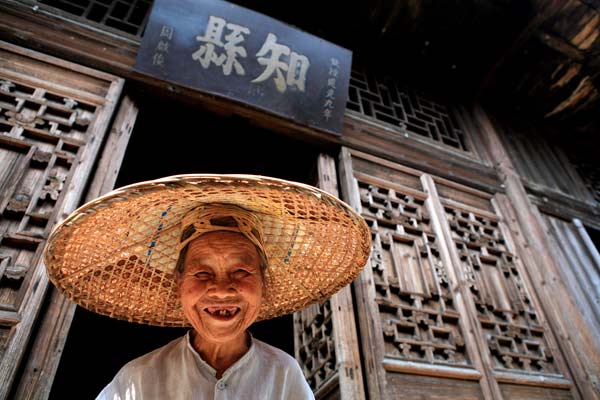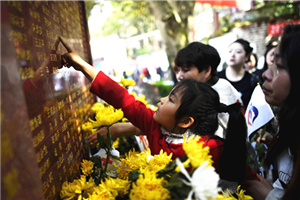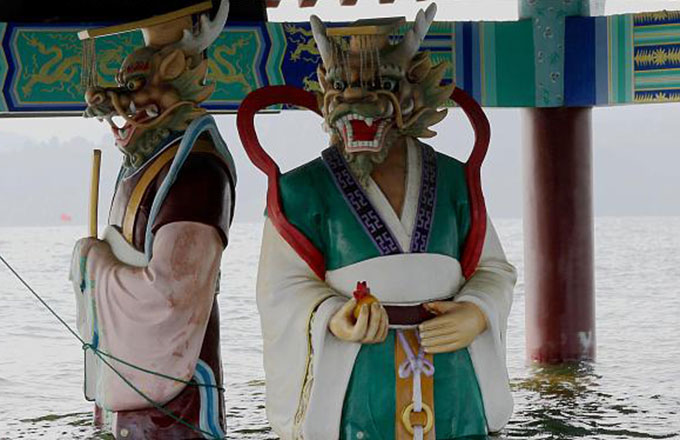Knowledge of the past
|
 |
|
A woman in her 80s poses in front of her house. The wooden board hung above the gate indicates her ancestor used to work as the county head. Huo Yan / China Daily |
Jiangtou village was once famous for producing many top academics. A visit to the village offers a glimpse of Chinese traditions long forgotten in other parts of the country. Li Yang reports in Guilin, Guangxi.
My visit to Jiangtou village feels like a pilgrimage to experience the type of Chinese tradition that has long been forgotten in many parts of the country.
Located in Lingchuan county in the Guangxi Zhuang autonomous region, the village is surrounded by mountains on three sides. To the east runs a river called Hulong, which literally translates as "Defending the Dragons".
There are 200 stone horse posts of various shapes and sizes surrounding the village along the river. Each represents an outstanding scholar or official from the village with his name and title inscribed on it.
Most of the statues were smashed to pieces during the "cultural revolution" (1966-76), with the damaged pieces now lying in the grass.
A 200-year-old stone bridge crossing over the river is the village's connection to the outside world.
A stone pagoda of about three meters high stands on the other side of the river. The pagoda is called Zichu, meaning "a kitchen of literacy". Villagers think it is improper to casually throw away paper written or printed with characters. All waste paper is collectively burned in the pagoda twice a month in a simple ceremony.
Villagers share the same family name, Zhou, and they identify themselves as descendants of Zhou Dunyi, who is believed to be the founder of Neo-Confucianism, an ethical and metaphysical Chinese philosophy in the Song Dynasty (960-1279).
Neo-Confucianism was to create a more rationalist and secular form of Confucianism by rejecting superstitious and mystical elements of Taoism and Buddhism.
Zhou Dunyi's philosophy has great influence on the villagers' attitudes and actions even today.
Most villagers I have met are polite and modest.
- Probe launched into illegal sales of eagles on livestreaming sites
- CMC to standardize benefits for senior military officials
- Vice-premier calls for sense of mission in poverty reduction
- Xi'an-Chengdu high speed railway enters inspection phase
- More air routes link places along Belt, Road





























